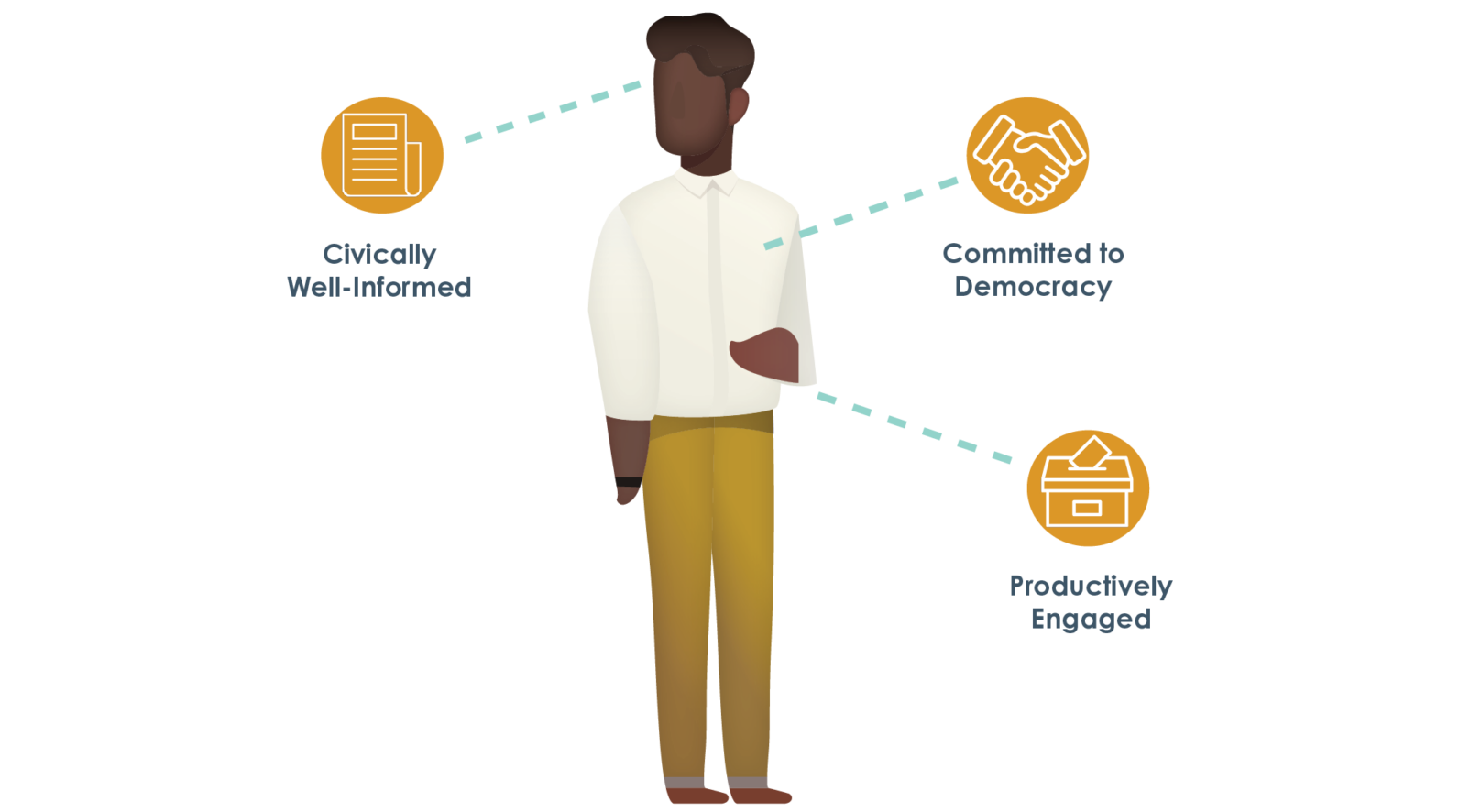What is Civic Learning?
Developing Effective Citizens
Share
Civic learning develops the civic knowledge, skills, and dispositions of young people, resulting in effective lifelong citizens who are civically well-informed, productively engaged, and hopeful about democracy.
Originally defined by Dr. Danielle Allen of Harvard University’s Democratic Knowledge Project and later refined by Citizens & Scholars president Raj Vinnakota in From Civic Education to a Civic Learning Ecosystem, civic learning is a broader conception of civic education that recognizes the long-term, multidimensional approach to develop young people as effective lifelong citizens inside and outside the classroom, at the workplace, and within the community.
Our Civic Learning Resource Hub is a one-stop-shop of the best resources curated from our ideologically-diverse network of practitioners.

Why is civic learning important right now?
The future of our democracy is at risk. The growing divisiveness in the United States is palpable and alarming, fueled by disinformation and distrust. Americans are drawing battle lines online, at school board meetings in our hometowns, and in the treasured halls of our nation’s Capitol.
We can strengthen democracy for the long haul if we develop a critical mass of young people who are civically well-informed, productively engaged for the common good, and hopeful about the future of our republic.
What is civics? Why is civics important?
Civics is traditionally the education of the rights and duties of citizens in society. Civic learning is a broader conception of civic education that also focuses on developing and practicing civic skills and dispositions.
What is an effective citizen?

Civically Well-Informed
Civic knowledge: a deep understanding of our history, culture, government, institutions, and current affairs from multiple media sources and diverse perspectives.

Productively Engaged
Civic skills: voting, involved in the community, debate and learn from each other, and eager to collaborate across difference to form a more perfect union.

Committed to Democracy
Civic dispositions: concern for the welfare of people of all backgrounds in communities and across the nation, working to improve trust in institutions and each other, and optimistic about the future of democracy.
What is civic understanding?
Similar to civic knowledge, civic understanding is the knowledge of how our government functions and the principles on which our country was founded, as well as an understanding of the major political and social issues of the day. Civic understanding informs the civic actions an engaged citizen may take.
What is civic virtue?
Civic virtue is the development of habits needed to have a productive role in society. By building healthy individual habits, the overall function of a civic society is positively impacted. Civic virtue is often linked to the idea of valuing the common welfare over the costs of the individual.
How do I teach my child civics?
Visit our Civic Learning Resource Hub to explore the best-of-the-best resources curated from our ideologically-diverse network of practitioners.
In which school grade do kids learn civics?
The traditional civics class usually happens by the 12th grade in the United States. Civics classes, curriculum, and standards vary state by state. Civic learning encourages the introduction of civics lessons as early as kindergarten through the learning that happens at school, at home, and in the community. Social-emotional learning and skills like critical thinking, collaboration, and discussion lay the groundwork for later lessons about how our government functions and the rights and responsibilities we hold as citizens.
Stay Engaged
Learn More
Your one-stop-shop of civic learning research, tools, events, and other resources that enable young people to be well-informed, productively engaged, and hopeful about democracy.
Civic Learning ResourcesGet Involved
Everyone has a role to play in saving and strengthening our democracy. Join our newsletter to receive funding opportunities, stories about our work, resources and tools, and ways to get involved.